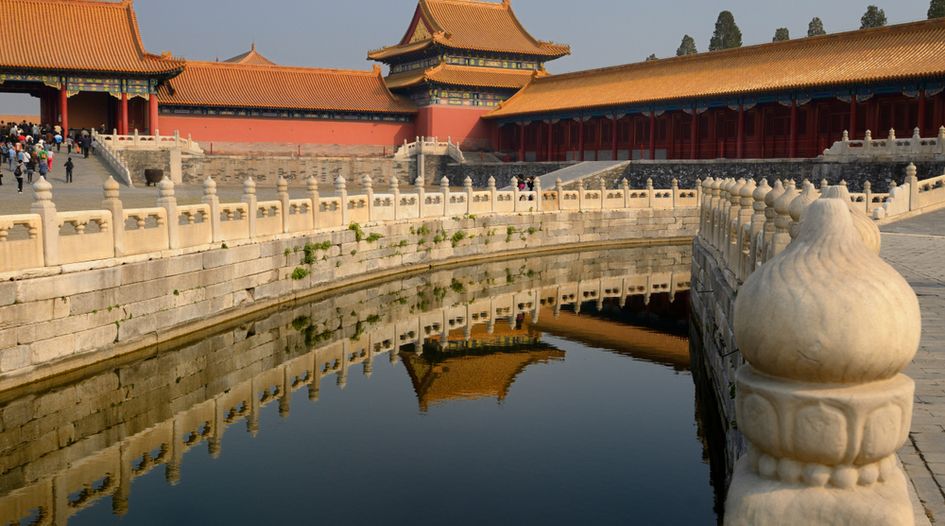Supreme People’s Court narrows the scope and jurisdiction of its IP Court amid workload concerns

On 16 October 2023 the Supreme People's Court (SPC) issued a decision to amend the Provisions on Several Issues Concerning the SPC IP Court of 27 December 2018, which came into effect on 1 November 2023.
The National People’s Congress decided on 26 October 2018, that all appeals of lower-court judgments in technical cases should be submitted to the SPC. As a result, the SPC created a special court – the IP Court – and on 27 December 2018 promulgated the aforementioned 2018 provisions, setting out how this court would function and defining the boundaries of its jurisdiction.
According to the 2018 provisions, the SPC IP Court has jurisdiction over all appeals against judgments and rulings rendered by intermediate courts, IP courts and high courts, in civil cases (including contractual disputes) involving:
- invention patents;
- utility models (but not designs);
- new plant varieties;
- technical secrets;
- computer software;
- integrated circuit layout designs; and
- antitrust matters.
The court also has jurisdiction over all appeals against Beijing IP Court judgments and rulings in administrative cases that involve the grant and confirmation of invention patents, utility models, designs, new plant varieties and integrated circuit layout designs.
Finally, it has jurisdiction over all appeals against intermediate court, IP court and high court judgments and rulings in administrative penalty cases involving all the IP types set out in the above list, as well as designs.
The SPC IP Court was so successful that it was swiftly inundated with appeals. The need for the SPC to amend the 2018 provisions and narrow the scope of its IP court’s jurisdiction became increasingly pressing.
Scope of jurisdiction
Appeals related to the following cases remain unchanged:
- administrative litigation concerning the granting and confirmation of patent rights (ie, invention patents, utility models and designs), new plant varieties and integrated circuit layout designs;
- civil and administrative litigation surrounding ownership disputes, invention patent infringement, new plant varieties and integrated circuit layout designs; and
- civil and administrative litigation concerning monopolies.
Changes will affect the following types of cases:
- civil and administrative litigation concerning the ownership and infringement of utility models, trade secrets and computer software – only the appeals against high court first-instance judgments will be accepted, so intermediate-level first-instance judgments should be appealed before the provincial high courts;
- contractual disputes, which will be excluded; and
- design cases, which will be excluded except those that concern the granting and confirmation of the rights.
The first two points with regard to the changes being made are in accordance with the SPC’s April 2022 judicial interpretation, which lowered the first-instance jurisdiction level for IP contractual cases and design cases.
In the meantime, the SPC will expand the jurisdiction of its IP Court over cases involving applications for reconsideration of interim measures ordered in the first instance of civil and administrative cases. Such cases include matters such as pre-trial injunctions, especially the highly controversial anti-suit injunctions, which used to be heard by the court that issued the order in the first place.
Addressing the abuse of litigation rights
The amendment also includes a new Article 4 about the abuse of litigation rights.
Article 4 states:
The Intellectual Property Court may request the parties to disclose information of any correlated cases involving the ownership, infringement, and the granting and confirmation of the disputed intellectual property rights. Failure to provide accurate disclosure may be taken into consideration when ascertaining whether the party follows the principle of good faith or whether the party abuses its rights.
This article refers to the well-established court principle that IP rights obtained in bad faith should not be enforced or protected. Therefore, a case initiated by such a bad-faith rights holder should be dismissed.
IAM recommends
IP court annual report breaks down valuable statistics on appeals cases
How the Chinese Supreme Court looks at jurisdiction in SEP cases
Value of Damages Awards Rockets Since Fourth Amendment to China’s Patent Law
This is an Insight article, written by a selected partner as part of IAM's co-published content. Read more on Insight
Copyright © Law Business ResearchCompany Number: 03281866 VAT: GB 160 7529 10

